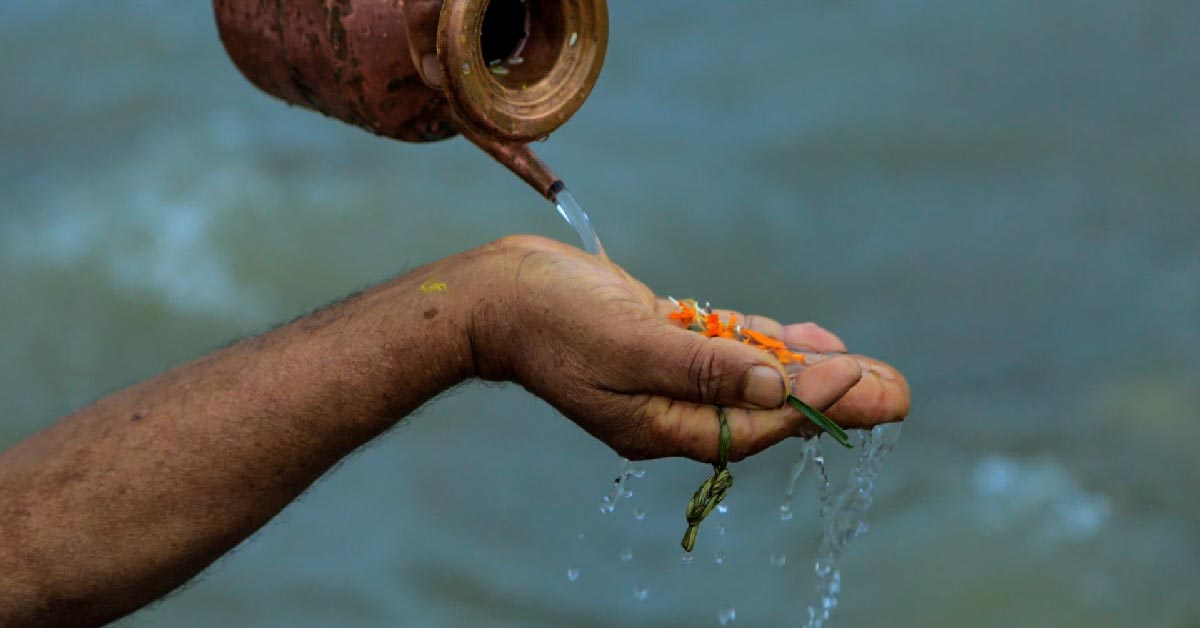
Kushe Aunsi Festival and Father’s Day Observance
Today is Bhadra Krishna Aunsi, also known as Kushe Aunsi. On this day, sacred Kush grass is brought into homes and worshipped.
Followers of the Vedic Sanatan Hindu tradition keep Kush grass at home for year-round religious activities, including worship of deities and rituals for ancestors. According to scripture, Brahmins perform Kush worship with prescribed rituals, cut the grass, and deliver it to households.
It is believed that keeping Kush at home brings prosperity and well-being to the family. Devotees regard Kush, Tulsi, Peepal, and Shaligram as symbols of Lord Vishnu.
Because Kush is worshipped and brought into households on this particular Aunsi, among the twelve Aunsis of the year, this day is specifically called Kushe Aunsi.
This day is also observed as Father’s Day. Just as Mother’s Day is celebrated to honor mothers, and Guru Purnima is observed to honor teachers, Kushe Aunsi is the day for remembering and paying respect to fathers.
Rituals and Beliefs
On Bhadra Krishna Aunsi, families celebrate by bringing home Kush grass that will be used throughout the year for rituals. According to Prof. Dr. Ram Chandra Gautam, Chairperson of the Nepal Panchang Determination Committee, Kush cut and brought today can be used all year, whereas Kush cut on other days can only be used that same day.
Sanatan followers believe Kush, Tulsi, Peepal, and Shaligram are forms of Lord Vishnu. Tradition holds that along with the creation of intelligent beings, Lord Brahma also created the sacred Kush grass.
Father’s Day Traditions
On this day, children honor their fathers by offering their favorite sweets and food, showing love and respect.
Those whose fathers have passed away visit sacred places to perform Tarpan, Pinda Daan, and Shraddha rituals, and also give Sida (offerings).
The Gokarneshwar Mahadev Temple in northeast Kathmandu, known as Uttar Gaya, hosts a special fair today. Thousands gather to perform ancestral rites in memory of their fathers. A similar tradition is followed in Betrawati, Rasuwa.
Following the belief of “Pitri Devo Bhava” (Father is equal to God), children receive blessings by respectfully serving food to their living fathers. For those whose fathers are deceased, performing Tarpan, Shraddha, and offerings at Gokarna or other sacred places is believed to bring peace to the departed soul and stability to the family.
Religious Importance of Kush
Scriptures describe Kush as being created with the origin of Brahma. Deities such as Indra are said to have used Kush in sacrifices, vows, and penance. A Brahmin holding Kush is considered as powerful as Indra’s Vajra, Vishnu’s Sudarshan Chakra, or Lord Shiva’s Trishul.
According to texts, Kush originated from the hairs that fell from Lord Varaha’s body when he rested by the seashore after defeating the demon Hiranyaksha. Similarly, in the story of Swasthani, Kush is said to have appeared as a form of cursed grass.
Because Kush is associated with divinity, it is used not only in rituals but also for purity, protection, and spiritual strength. Scriptures emphasize that religious acts like Sandhyavandan and other rites must be performed with Kush.
Respect to Parents
In scriptures, parents are described as living deities, deserving the highest respect. They provide life, education, and upbringing, enduring hardship to raise children into capable citizens. Serving and honoring parents is considered a sacred duty of all children.
The day of Kushe Aunsi is therefore both a day of Kush selection and a day of honoring fathers. Those with living fathers celebrate with food, clothing, and respect, while those whose fathers have passed away perform Shraddha and charitable acts in their name.
It is also customary to sponsor scholarships, feed Brahmins, or construct religious facilities in memory of fathers. This day is believed to be highly auspicious for performing such acts of respect.
Duties of Children
Serving parents wholeheartedly during their lifetime is considered the foremost duty of children. After their passing, performing Shraddha and charitable deeds ensures peace for their souls. These actions, free from impurity or pretension, are collectively regarded as Satkarma (virtuous deeds).
Therefore, Kushe Aunsi is a sacred day for both religious rituals and filial devotion, observed in Gokarna, Barahkshetra, Devghat, Bishnupaduka, and households throughout Nepal.
Festival

